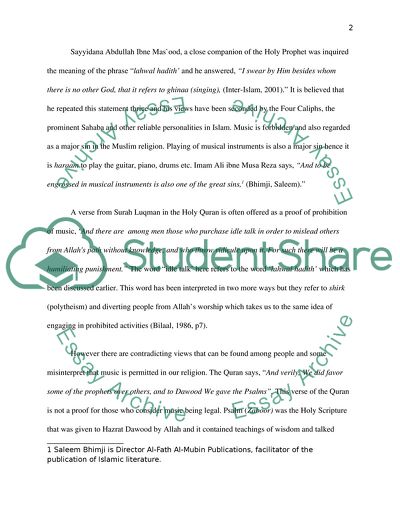Cite this document
(“Whether music is allowed according to the islamic shari'a Essay”, n.d.)
Whether music is allowed according to the islamic shari'a Essay. Retrieved from https://studentshare.org/religion-and-theology/1595631-whether-music-is-allowed-according-to-the-islamic-sharia
Whether music is allowed according to the islamic shari'a Essay. Retrieved from https://studentshare.org/religion-and-theology/1595631-whether-music-is-allowed-according-to-the-islamic-sharia
(Whether Music Is Allowed According to the Islamic shari'A Essay)
Whether Music Is Allowed According to the Islamic shari'A Essay. https://studentshare.org/religion-and-theology/1595631-whether-music-is-allowed-according-to-the-islamic-sharia.
Whether Music Is Allowed According to the Islamic shari'A Essay. https://studentshare.org/religion-and-theology/1595631-whether-music-is-allowed-according-to-the-islamic-sharia.
“Whether Music Is Allowed According to the Islamic shari'A Essay”, n.d. https://studentshare.org/religion-and-theology/1595631-whether-music-is-allowed-according-to-the-islamic-sharia.


